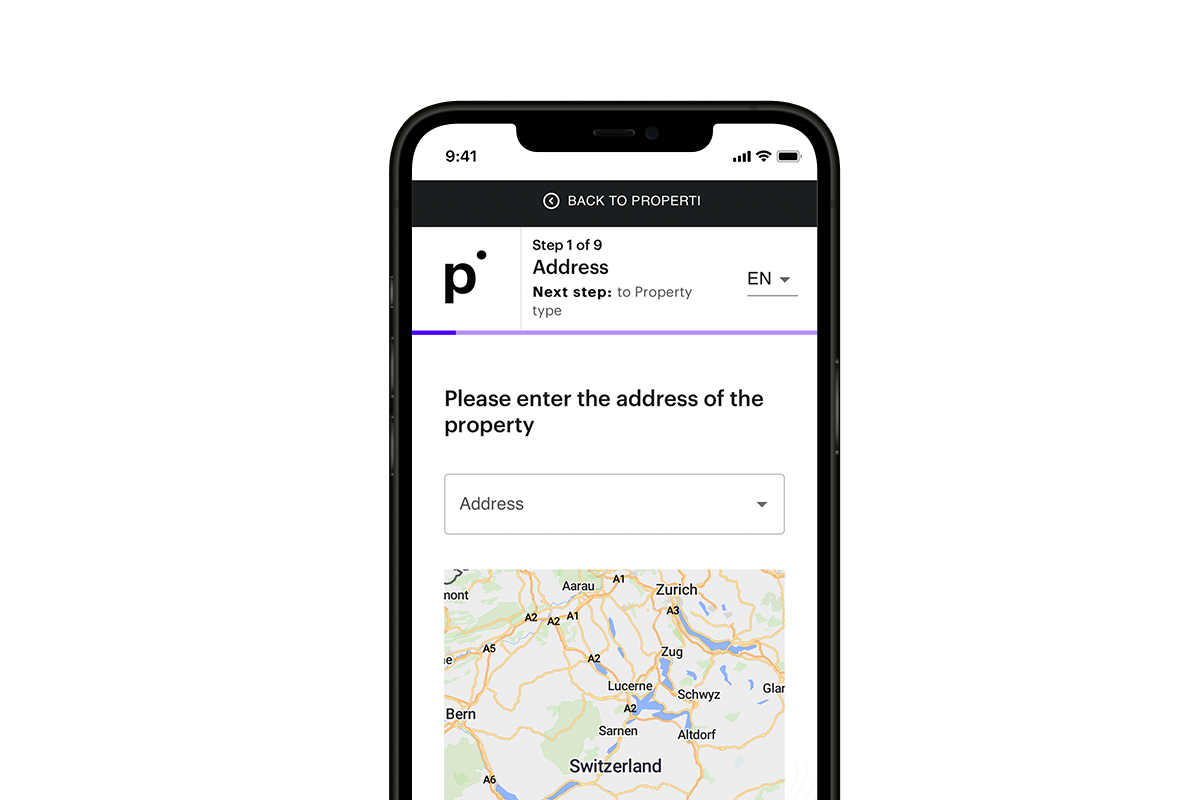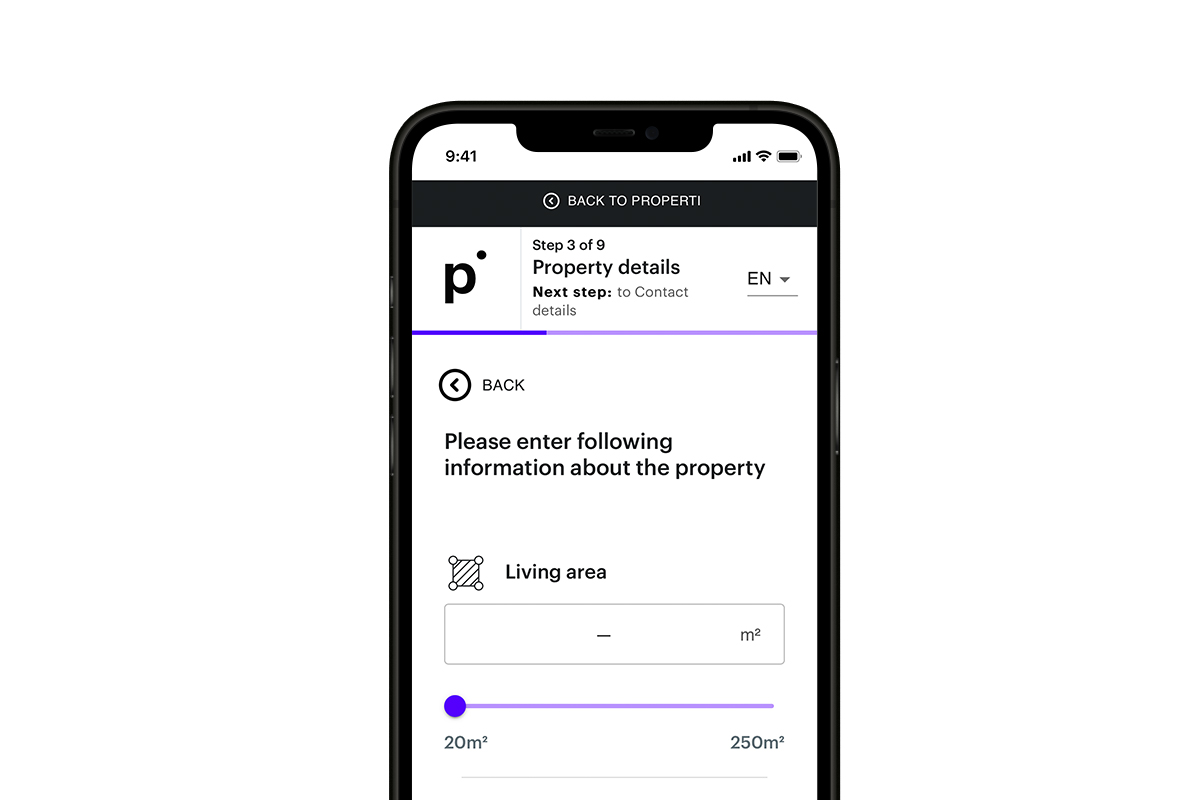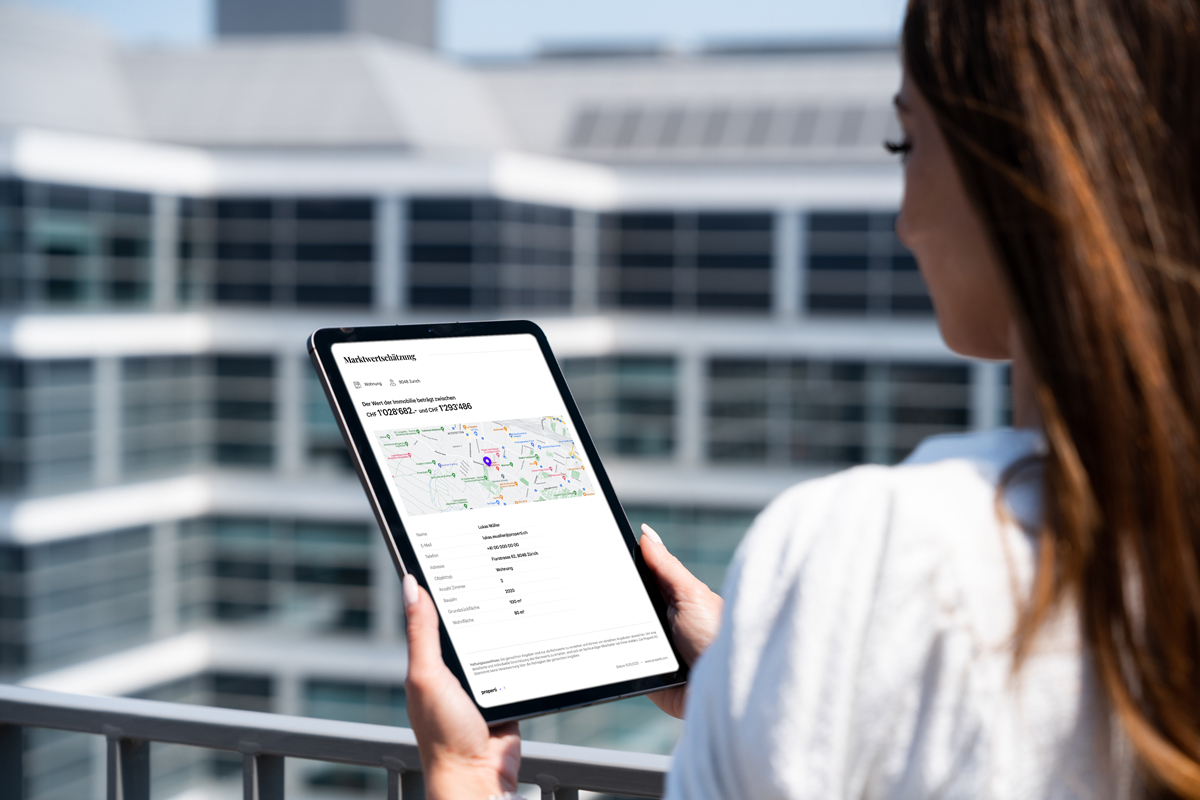Details of your property
You provide information about the relevant key data of your property. Based on this, the net profit can be evaluated, which serves as the basis for calculation.
Calculate your tax with our property gains tax calculator. Get an estimate based on current market analysis and real estate data.
Get a quick result for well-founded tax decisions.
Optimize your financial and tax planning on the basis of our calculations.
Avoid unexpected tax charges because you know your tax burden in advance.
You provide information about the relevant key data of your property. Based on this, the net profit can be evaluated, which serves as the basis for calculation.

We then calculate the property gains tax due based on all your details and cantonal tax laws.

Once you have completed the form, you will receive the property gains tax details and an estimate of your real estate market value as a PDF by e-mail. You can decide in one call whether you would like to discuss the results with one of our experts.

Get a comprehensive overview of market and development data for your municipality and see the changes over the last six months at a glance.
With one of our certified brokers on site
Marcel. V
April 2024
Selling an apartment is not an everyday act
Selling a condominium is not an everyday act. There is a lot to consider here. The real estate market is a highly specialized niche in which the highest level of professionalism and expertise pays off directly in the form of good sales proceeds. When we decided to sell our condominium, it was therefore clear to us that the first thing we had to do was to find professional support for this transaction. With Properti AG, we have found the support we were looking for. Elena Dumrauf impressed us during her first visit to our apartment. She argued convincingly and her entire appearance radiated friendly competence.
Cristina
April 2024
Fully and completely satisfied
We had the pleasure of engaging Luca Lauria for our real estate sale, who did an excellent job in dealing with our requirements and the wishes of potential buyers. He is very friendly and professional, he regularly informed us about the progress and supported us with solutions. Even if we didn't get exactly what we expected in the end, we are completely satisfied with the result and the way in which it was achieved.
Hans T.
January 2024
Exemplary expert advice and support
We were very satisfied with Properti's performance, especially that of Ms. Laura von Leliwa. Your competent advice and support was exemplary. I can only recommend you. Thank you
Optimize your property sale with our comprehensive checklists. Keep track of all the important steps and rely on our tried-and-tested expert tips.
Explore our tools and services for homeowners and find out what other opportunities await you.
Use our free calculator to determine the optimum sales value for your property - free of charge and without obligation.
Find out the optimal rent for your property with the help of our online calculator - without obligation and free of charge.
The property gains tax is based on the realized property gain, which is the difference between the original purchase price and the current sales price. In addition, the period of ownership of the property is included in the calculation and the calculated profit is subject to a corresponding tax rate.
The duration of property ownership has a direct influence on the amount of property gains tax. As a general rule, the longer the property has been in the seller’s possession, the lower the tax. However, some cantons levy a tax surcharge for ownership periods of less than 5 years in order to prevent speculation. The discounted cash flow method (DCF) quantifies the expected income from investment properties and calculates their present value using the discount rate. The hedonic method is used for owner-occupied properties and compares property and location-specific characteristics with transactions from the past.”
Sales costs, such as estate agent, notary and advertising costs, as well as costs for value-enhancing investments can be deducted from the property gains tax.
By purchasing a replacement property within a reasonable period of time – usually 1 to 5 years, depending on the canton – the property gains tax can be waived. It is important that both the newly acquired property and the sold property are the seller’s place of residence. This regulation also applies to properties used for agricultural purposes.
The tax rate varies depending on the location of the property and how long it has been owned. The tax is due in the municipality or canton in which the property is located, and the calculation of the tax rate differs from canton to canton.
As a rule, the tax is paid by the seller of the property, regardless of whether it is a private individual or a legal entity. However, there are agreements in which the tax is split between the buyer and seller.
Property gains tax can be deferred in the event of death or the purchase of a replacement property in the same canton. If the seller reinvests the profit in a similar property within a reasonable period of time, the tax on the property sold is waived. Almost every canton offers exemptions for natural persons.
Depending on the canton, two different systems are used for property gains tax: In the monistic system, the tax is levied on profits from business properties (cantons BE, BL, BS, JU, NW, SZ, TI, UR, ZH). In the dualistic system, profits from commercial properties sold are subject to income or profit tax. This may vary from canton to canton.
Selling real estate
Renting out real estate
New construction real estate
Investment properties
Commercial real estate
Real estate marketing
Sell house
Sell apartment
Selling real estate
Renting out real estate
New construction real estate
Investment properties
Commercial real estate
Real estate marketing
Sell house
Sell apartment
Selling real estate
Renting out real estate
New construction real estate
Investment properties
Commercial real estate
Real estate marketing
Sell house
Sell apartment
Selling real estate
Renting out real estate
New construction real estate
Investment properties
Commercial real estate
Real estate marketing
Sell house
Sell apartment